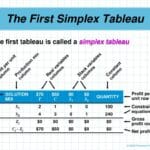This guide provides a complete walkthrough of the Losertown calculator, from accessing it to interpreting the results, and addresses common questions about its accuracy and effectiveness.
Finding the Losertown Calculator
Accessing the official Losertown calculator is the first step. This ensures you’re using the correct tool and receiving the most accurate information.
Locating the Calculator
- Desktop Users: Visit losertown.org in your web browser.
- Mobile Users: Access the mobile-friendly version at losertown.org/mobile/cal.php.
Inputting Your Data
Providing accurate information is crucial for reliable results. The Losertown calculator requires several key inputs:
Entering Your Information
- Current Weight: Enter your current weight accurately.
- Goal Weight: Input your desired weight.
- Typical Daily Calorie Intake (Optional): If you know your current daily calorie intake, enter it here. If not, you can estimate or leave it blank.
- Age, Height, and Gender: These demographics influence metabolic calculations.
- Activity Level: Select your activity level from the provided options (Sedentary, Lightly Active, Moderately Active, Very Active, Extra Active). Be honest and perhaps slightly conservative in your selection, as overestimation is a common source of inaccuracy.
Understanding the Results
Once you’ve entered your data, click “Calculate.” The Losertown calculator will generate a report containing:
Decoding the Output
- Daily Calorie Target: The estimated number of calories to consume daily to reach your goal weight within the projected timeframe. This is an estimate, and individual needs may vary.
- Projected Timeline: An estimated timeframe for reaching your goal weight, assuming consistent adherence to the calculated calorie target. This is a projection, not a guarantee, as various factors can influence weight loss. Delve deeper with our LEQ rubric for a structured approach to evaluating progress.
- Macronutrient Suggestions (Optional): The calculator can suggest daily macronutrient (carbohydrates, protein, and fat) intake targets. This feature is optional and might not be necessary for everyone.
Adjusting for Specific Goals
While Losertown doesn’t cater specifically to diets like keto or low-carb, you can adjust your calorie and macronutrient targets to align with your chosen approach.
Tailoring Your Approach
- Calorie Adjustment: You can manually adjust your daily calorie target within the calculator to reflect specific dietary restrictions or preferences.
- Macronutrient Adjustment: If you’re following a specific macronutrient distribution (e.g., high protein, low carb), you can adjust the suggested macronutrient targets accordingly.
Tips and Tricks for Using Losertown Effectively
Using the Losertown calculator effectively involves understanding its limitations and incorporating it into a holistic weight management approach.
Maximizing Losertown’s Potential
- Be Realistic: Provide accurate information, especially regarding activity level.
- Regular Updates: Revisit the calculator and update your information, particularly after significant weight changes.
- Healthy Habits: Focus on overall healthy habits, including balanced nutrition, regular exercise, and stress management.
- Professional Guidance: The Losertown calculator is a tool, not a substitute for professional advice. Consult a registered dietitian or healthcare professional for personalized guidance.
- Listen to Your Body: Pay attention to your hunger cues and energy levels. Adjust your calorie intake based on how you feel.
- Track Your Progress: Monitor your weight and compare it to Losertown’s projections. This allows you to assess the calculator’s accuracy for your individual situation and make adjustments as needed.
Troubleshooting Common Issues
Addressing common questions and concerns can help users navigate the Losertown calculator more effectively.
Common Questions and Concerns
- “Losertown Weight Loss Program”: There is no official “Losertown Weight Loss Program.” The calculator is a standalone tool.
- Accuracy Concerns: While based on established formulas, the calculator’s projections are estimates, not guarantees. Individual metabolic rates, hormonal fluctuations, and lifestyle factors can influence actual weight loss. Some online discussions, especially on platforms like the Eating Disorder Support Forum, question its precision.
- Plateaus: Weight loss plateaus are normal. If your progress stalls, revisit your calorie intake, activity level, and overall lifestyle habits. Consider consulting a healthcare professional for guidance.
- Overestimating Activity: A common mistake is overestimating activity levels, which can lead to a calorie target that’s too high and slower than expected progress.
- Emotional Well-being: Remember that weight loss is a journey, not a sprint. Focus on overall well-being and avoid becoming overly fixated on the numbers.
Exploring Alternatives
While Losertown is a helpful tool, it’s not the only option.
Other Resources
- Registered Dietitians/Healthcare Professionals: For personalized guidance, consult a qualified professional.
- Other Calorie Calculators and Apps: Explore other tools like the 1percentedge.com calculator, which some users find more comprehensive. Some find Losertown calc helpful for visualization. Explore the più mosso music definition for an interesting analogy of change and pacing.
The Science Behind Losertown: Calories and TDEE
Losertown uses the principle of “calories in, calories out,” estimating your Total Daily Energy Expenditure (TDEE) and projecting weight changes based on your chosen calorie deficit. However, it’s crucial to remember that TDEE calculations are estimates, not precise measurements. Factors like individual metabolism, hormones, and water weight fluctuations can influence outcomes.
How Accurate Is Losertown? A Realistic Perspective
Predicting weight loss with complete accuracy is challenging. Losertown provides estimates based on averages, but individual experiences vary. Some users achieve results close to projections, while others find discrepancies. For example, one user reported successfully losing 50 pounds using Losertown for motivation, while another, aiming for 156.3 pounds, remained at 178/179 despite following the plan. These varied experiences underscore the complexity of weight loss and the importance of considering Losertown a guide, not a definitive prediction.
Losertown and Fasting
Losertown is sometimes used in fasting communities to estimate calorie needs on non-fasting days. However, careful tracking during fasting periods is crucial.
Conclusion
The Losertown calculator can be a valuable tool for weight management when used responsibly and in conjunction with a healthy lifestyle and professional guidance. It offers a way to visualize potential progress and understand the relationship between calorie intake and weight change, but it’s essential to acknowledge its limitations and prioritize overall well-being.
- China II Review: Delicious Food & Speedy Service - April 17, 2025
- Understand Virginia’s Flag: History & Debate - April 17, 2025
- Explore Long Island’s Map: Unique Regions & Insights - April 17, 2025
















